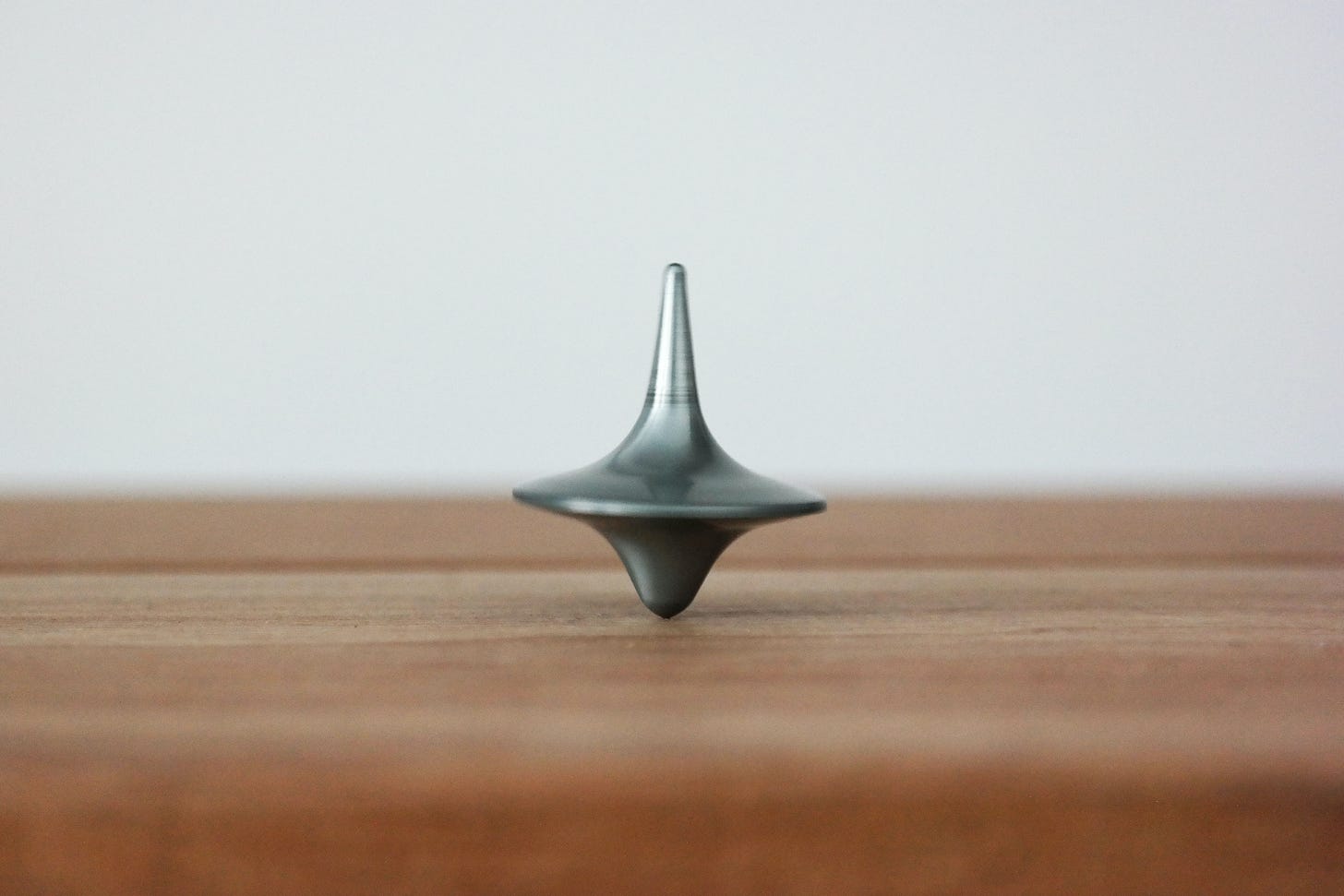C. Christopher Smith, Founding Editor at The Englewood Review of Books has been writing a series of posts on his Substack, on Johann Hari’s new book, Stolen Focus: Why You Can’t Pay Attention—and How to Think Deeply Again. Chris, being a great friend, sent me Hari’s book as a Christmas gift—which, incidentally, my college-age son Nathan immediately took from me.
It was Hari’s book (which I’d only started before Nathan absconded with my copy) that I thought of when Maggie (not her real name) shared a response to my reflection question at a recent rule of life workshop.
“What’s the primary obstacle to deepening your life of faith?”
Maggie volunteered a response and started to speak of her “spinning mind.” Say more, I encouraged, wanting to know if she could describe a little more precisely this internal state. Was it distraction? Was it anxiety? But those questions, goading Maggie to be a little more precise, were hard for her to answer. “It’s just my spinning mind,” she reiterated.
The “spinning mind” is the state described to Hari in one of his early interviews. Hari spoke with scientific specialist and author of Willpower, Professor Roy Baumeister at the University of Queensland in Australia. But despite his own expertise, Baumeister admitted to Hari the state of his own “spinning mind.” “I’m feeling like my control over my attention is weaker than it used to be. . . It seems like my mind jumps around a lot more,” (9).
I can’t imagine there’s someone reading here who doesn’t know exactly what he—and Maggie—mean.
Here is the broad curiosity of Hari’s book: why are we suffering attentional deficits? And is there hope of recovery? These questions—about the growing inability to pay attention—are perplexing many of us today. There are reasons to be greatly concerned about these attentional deficits as related to the spiritual life. Can we love God if we can’t attend to God? Can we love our neighbor if we can’t attend to them? As I tried arguing in In Good Time, it’s not time-scarcity that we should be so concerned about; it’s attention-scarcity.
You can have all the time in the world, but without attention, your time isn’t worth very much.
Ezra Klein, a popular podcast host, led off his show this year with an interview on attention. He spoke with Gloria Mark, a professor at the University of California, Irvine, and author of the book, Attention Span.
My interest was piqued to hear Mark use the language of “attentional injury.” This is a particularly disturbing phenomenon, that the more distracted we become, the more injury our attention suffers. Distraction, in other words, can have lasting damage. This injury shows up in many forms, Mark said, especially exhaustion and burnout. Klein was quick to notice that it is often distraction we seek when feel exhausted. It’s to say that the antidote is the poison. Our mindless IG scrolling, our cat videos, our Netflix binging, our obsessive email checking: these don’t restore but steal. They deplete our energy, rather than replenish it.
Here’s the paradox: the effortful goods of life might be the very thing to deliver on the rest we seek.
This isn’t to say that we will recover attention by our choice alone. There is more at play than our good and bad (digital) choices when it comes to attentional deficits. There is an environment we inhabit that doesn’t support good choices. Matthew B. Crawford, author of The World Beyond Your Head, reminds in his book that our contemporary crisis is a crisis of attention. Attention, which he defines as that which “determines what is real for us,” isn't solicited; it's stolen. He writes, “Attention isn’t simply ours to direct at will.”
Sounds ominous, I know. But Crawford proposes something called a “jig,” which I learned about here before reading his book. A jig “is a device or procedure that guides a repeated action by constraining the environment in such a way as to make the action go smoothly, the same each time, without having to think about it . . . A jig reduces the degrees of freedom that are afforded by the environment.” A church liturgy is a jig. A supermarket layout is a jig. Suburban sprawl is a jig.
“To keep action on track, according to some guiding purpose, one has to keep attention properly directed.” A jig, then, foregrounds one thing—and backgrounds another. It “triggers” the habit of action.
Wouldn’t you know that I think this is exactly how we might think about a rule of life: as a jig to direct our attention to the love of God, love of neighbor, love of self. A rule of life constrains our choices, helping us to commit in advance of the moment of decision. It foregrounds our God-given responsibilities—and backgrounds a lot of other noise.
As Abby Murrish has shared in recent workshops, according to poet Malcolm Guite, it is a “binding by which freedom might be found.”
Freedom from distraction. Freedom for attention.
Freedom from exhaustion. Freedom for effort.
Freedom from indecision. Freedom for commitment.
We’ve had two great ROL intensives in January. The next virtual workshop is Friday, March 1. All registration information is here.





I hadn't thought about this before, it's very interesting. This reminds me of: "Martha, Martha, thou art careful and troubled about many things: but one thing is needful..." The practice of centering on the needful thing guards against the natural tendency to be wave-tossed, and the increasing stress and uncertainty that follow :) Early in my faith, because I was completely new to faith and scripture, I spent a lot of time just mentally kind of checking in throughout my day - "Lord, help me know if this is what I should do." Later, when the to-dos piled up, that habit really helped me stay anchored.
This is straight out of Augustine, as well!!